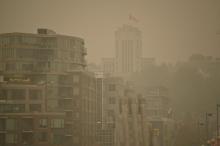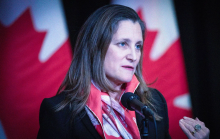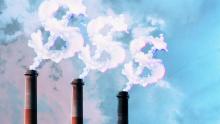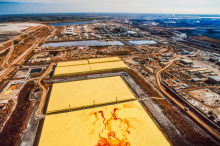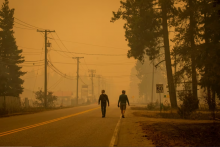Despite plummeting public opinion polls, the federal Liberals made only a half-hearted attempt to turn the page in a fall fiscal update marked by economic restraint.
The feds are putting housing measures on display, but actual new public spending on that front is marginal. Elsewhere, the government found $3 billion in “refocused” government spending that may signal public service cuts to come. Altogether, the fiscal update is an uninspiring response to the myriad crises confronting the country.

